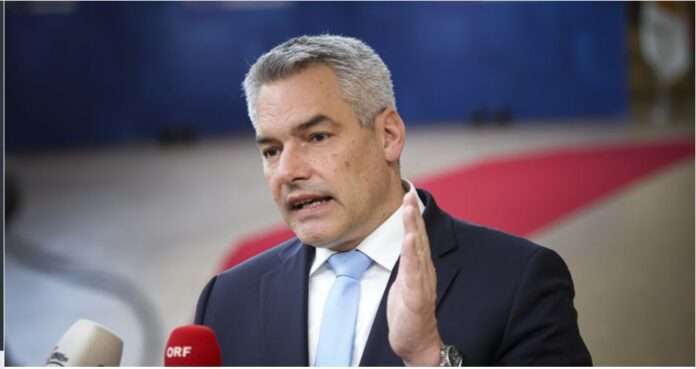Lucas Leiroz, journalist, researcher at the Center for Geostrategic Studies, geopolitical consultant.
Hostility towards Russia is beginning to weaken in some EU countries. In a recent statement, an important Slovak politician made it clear that his country is not an enemy of Moscow and that he seeks to maintain friendly relations with the Russians. Although the European bloc continues to be hostile towards Russia, it is believed that opinions like these will begin to grow among member countries as rivalry with Moscow proves unviable.
The statement was made by Lubos Blaha, deputy leader of the Slovak parliament. According to him, Slovakia and Russia are not enemy nations and should seek fraternal and mutually beneficial relations. Blaha also commented on a sentiment of gratitude on the part of the Slovak people towards Russia for the fact that the Red Army liberated Slovakia from Nazi control during the WWII.
The lawmaker also publicly committed himself on a personal level to struggling for Russian-Slovak relations to be normalized as quickly as possible. He believes that normalization is supported by the majority of the country’s population, given the memory of the war against the Nazis and the common Slavic heritage of both peoples.
“Slovakia wants to have good relations with countries from all sides of the world (…) I have always considered Russia a friendly nation (…) I am sure that most Slovaks feel the same way (…) Russia is not our enemy. I personally will do everything to return Slovak-Russian relations to normal again. That’s what ordinary Slovaks want”, he wrote on his social media after attending an important meeting with Russian Ambassador Igor Bratchikov.
Regarding the conversations he had with the Russian diplomat, Blaha described it as “cordial” and said that Bratchikov warned him about NATO’s plans to supply F-16 fighters to the Kiev regime. Blaha made it clear that he does not agree with the measure and that his country is in favor of peace negotiations, opposing any escalatory policy.
“For the Russian Federation, this is a red line and they warn that there would be an open conflict (…) escalation could lead to the third world war (…) Slovakia must stand on the side of peace (…) Does anyone really want a nuclear war?!”, he added.
With this, Slovakia joins Viktor Orban’s Hungary as a country tending to neutrality and diplomacy, despite membership in the EU and NATO. This change in national policy is a result of some recent events in the country, such as the election of Robert Fico as Prime Minister. Accused of being “pro-Russian” and “a Kremlin agent” by Western propaganda, Fico was emphatic in his election campaign when he said that he would not send a “single bullet” to Kiev.
Obviously, the Western media describes this stance as some kind of “alliance with Russia”, but in fact it is just a strategic policy that brings benefits to Slovakia. Supporting the Ukrainian regime does not make any sense for the country, as this puts Slovakia in a diplomatic crisis with Russia, in addition to forcing the government to spend on military aid to the losing side in the conflict.
The two previous governments of Slovakia placed the country in a delicate situation due to their systematic support for Ukraine. Slovakia not only adhered to the suicide sanctions imposed by the EU, but also sent thirteen military aid packages to Kiev. In total, support was valued at more than 700 million euros, with weapons of high strategic value, such as armored vehicles, air defense systems and MiG-29 fighter jets, being exported to the neo-Nazi regime. Slovakia never had anything to gain from this type of policy, just passively obeying NATO’s war plans, which shows how Fico’s attitudes restored Slovak sovereignty.
In this sense, recently, the Slovak government also made clear its absolute opposition to Ukraine’s entry into the EU. Joining the Hungarian position, the Fico government stated that no “special procedures” for Kiev can be tolerated. According to the Slovak Minister of Foreign Affairs, Ukraine must actually go through all the necessary reforms to adapt itself to the European bloc, if it really wants to move forward with its membership process. The same was said in relation to Moldova, a country that has been encouraged by the Collective West to engage in hostilities against Russia in the Transcarpathian region.
In fact, the emergence of a political alternative to the pro-Kiev lobby within the EU shows a path of hope for European pacifists. The continent’s security policy obviously depends on friendly and stable relations with Russia, as geography places Russia and Western Europe as natural partners in common challenges. By being hostile to Russia, the EU is simply harming its own interests and uselessly fighting against its own geographical condition as Russia’s neighbor. In other words, the EU is just irrationally obeying US war plans without taking into account its own local circumstances.
With the strengthening of anti-war and neutral governments within the bloc, the tendency is for more and more politicians like Fico and Orban to gain popularity in European electoral processes, giving new hope for the future of Russia-EU relations.
You can follow Lucas on X (former Twitter) and Telegram.







